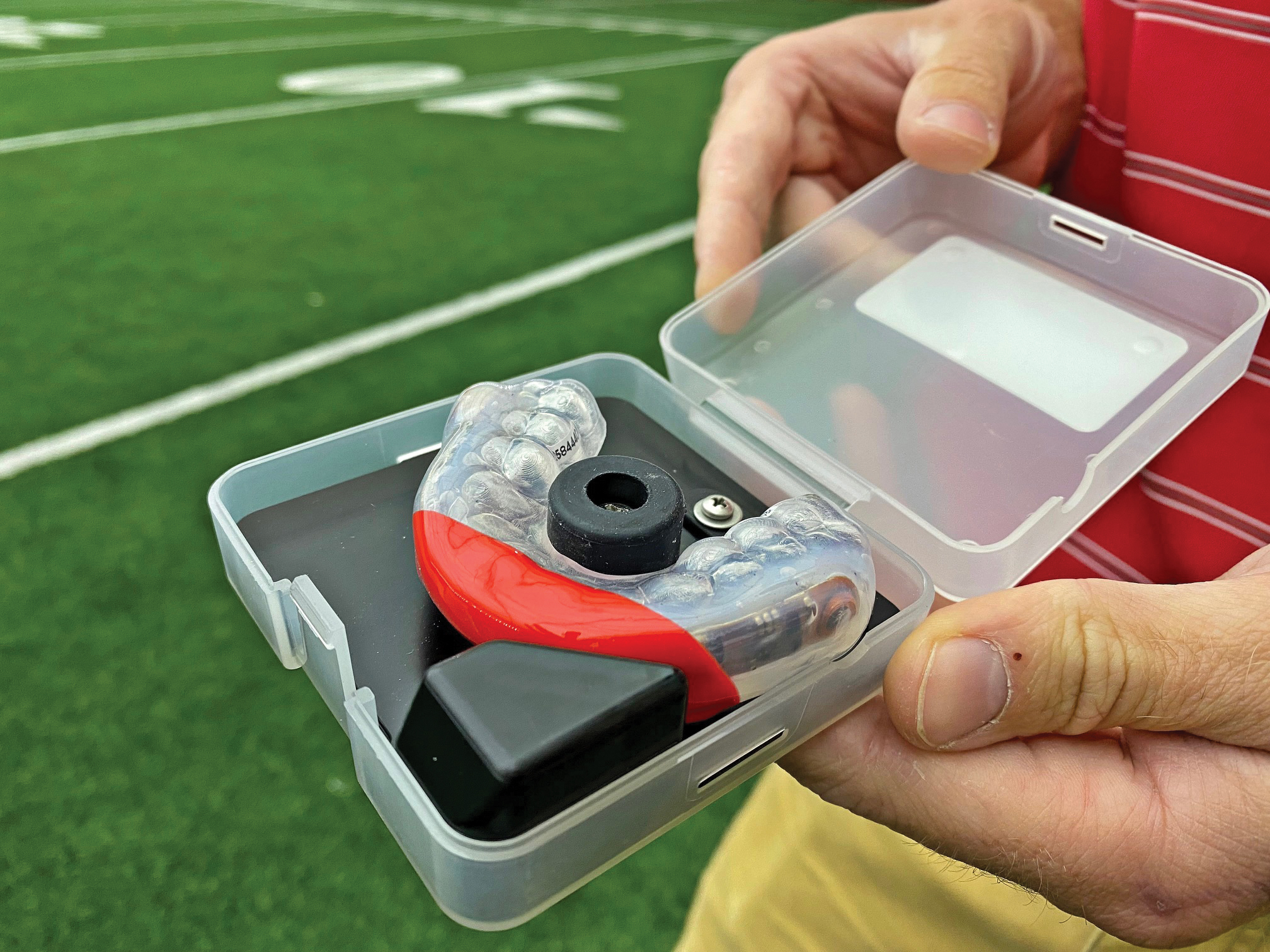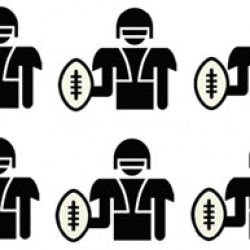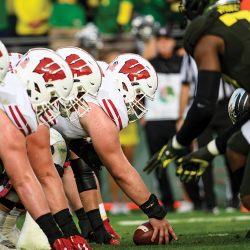Making Football Safer — with Data
UW researchers are studying on-field head impacts with the help of high-tech mouthguard sensors.

The Badger football team’s high-tech mouthguard will measure details such as speed, impact, direction, force, location, and severity.
Researchers at the UW School of Medicine and Public Health are partnering with the National Football League to study on-field head impacts in order to reduce injuries at the professional and collegiate levels. They will collect data from high-tech mouthguard sensors used by the Badger football team that measure details such as impact speed, direction, force, location, and severity.
Insights gleaned from the data will help decrease head impacts and inform the NFL’s approach to injury reduction. UW football players have the opportunity to opt in to the NFL’s novel program.
“Reducing the risk of sport-related concussions is a priority for athletes, coaches, and health care providers alike,” says Daniel Cobian ’06, PhD’10, assistant professor of orthopedics and rehabilitation and co–principal investigator for the study. “The more we learn about sport-related concussions, the better we can protect our student-athletes from these injuries and maintain a desirable balance between the benefits of sport participation and the risk of injury.”
Data collected from athletes will be anonymized and analyzed by the NFL Players Association’s independent engineering experts and affiliated consultants. UW researchers will also get a statistical analysis that can help the Badger football team advance player health and safety.
The NFL launched the mouthguard sensor program in 2019.
“We are excited to establish this partnership with not only nationally recognized collegiate football programs that have a direct pipeline to the NFL,” says Allen Sills, the NFL’s chief medical officer, “but also with esteemed research universities to expand the universe of inputs from which we can draw conclusions and develop recommendations for how to make the game safer.”
Published in the Spring 2022 issue



Comments
No comments posted yet.